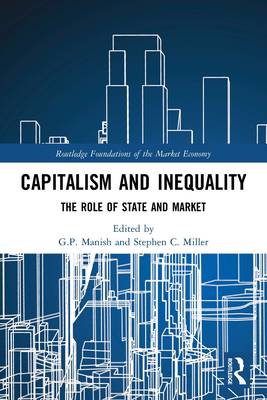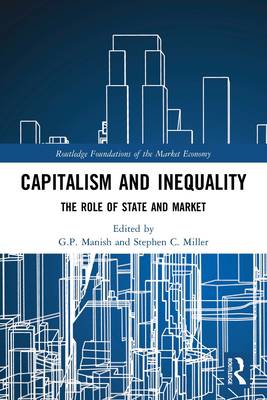
- Retrait gratuit dans votre magasin Club
- 7.000.000 titres dans notre catalogue
- Payer en toute sécurité
- Toujours un magasin près de chez vous
- Retrait gratuit dans votre magasin Club
- 7.000.0000 titres dans notre catalogue
- Payer en toute sécurité
- Toujours un magasin près de chez vous
Capitalism and Inequality
The Role of State and Market
Description
Capitalism and Inequality rejects the popular view that attributes the recent surge in inequality to a failure of market institutions. Bringing together new and original research from established scholars, it analyzes the inequality inherent in a free market from an economic and historical perspective. In the process, the question of whether the recent increase in inequality is the result of crony capitalism and government intervention is explored in depth.
The book features sections on theoretical perspectives on inequality, the political economy of inequality, and the measurement of inequality. Chapters explore several key questions such as the difference between the effects of market-driven inequality and the inequality caused by government intervention; how the inequality created by regulation affects those who are less well-off; and whether the economic growth that accompanies market-driven inequality always benefits an elite minority while leaving the vast majority behind. The main policy conclusions that emerge from this analysis depart from those that are currently popular. The authors in this book argue that increasing the role of markets and reducing the extent of regulation is the best way to lower inequality while ensuring greater material well-being for all sections of society.
This key text makes an invaluable contribution to the literature on inequality and markets and is essential reading for students, scholars, and policymakers.
Spécifications
Parties prenantes
- Editeur:
Contenu
- Nombre de pages :
- 234
- Langue:
- Anglais
- Collection :
Caractéristiques
- EAN:
- 9780367534738
- Date de parution :
- 01-08-22
- Format:
- Livre broché
- Format numérique:
- Trade paperback (VS)
- Dimensions :
- 156 mm x 234 mm
- Poids :
- 349 g

Les avis
Nous publions uniquement les avis qui respectent les conditions requises. Consultez nos conditions pour les avis.





